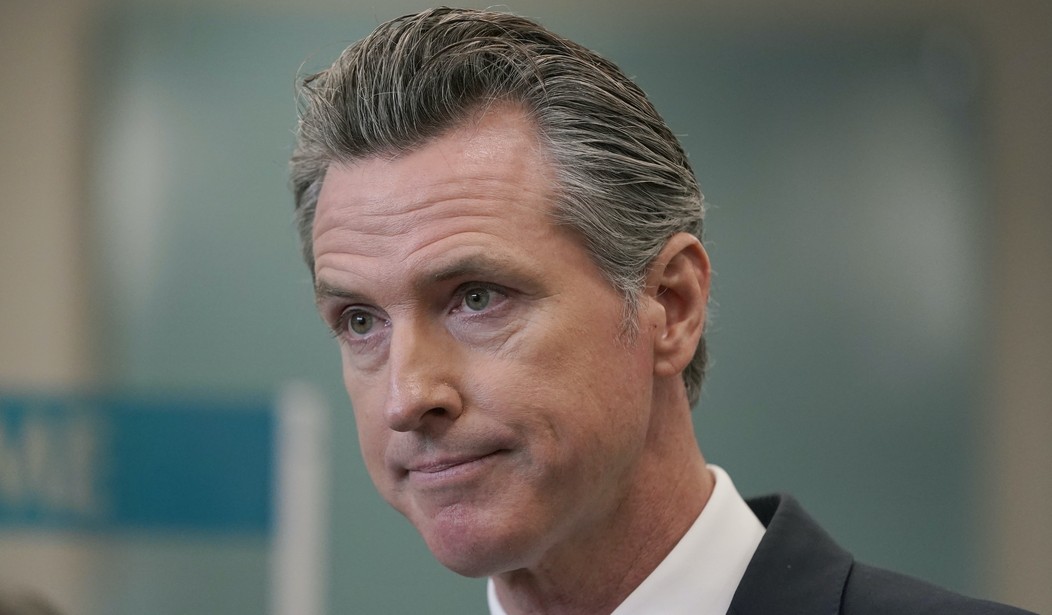“Absentee ballots remain the largest source of potential voter fraud.” That quote isn’t from Republican gubernatorial candidate Larry Elder. It’s the conclusion of the bipartisan 2005 report of the Commission on Federal Election Reform, chaired by former President Jimmy Carter and former Secretary of State James Baker III.
There is increasing evidence of vote fraud in the California recall election.
Torrance, California Police found 300 recall ballots and multiple California drivers licenses in a felon’s car.
In the San Fernando Valley, election officials are telling Republican voters that they have already voted. At one precinct in Woodland Hills, election officials were saying that the problem was occurring all morning.
Election officials say they are fixing these problems. In the Torrance case, voters whose ballots were found in the car will be sent new ones. In the San Fernando valley, provisional ballots will be issued to those who say they hadn’t already voted.
But these “fixes” only correct part of the problem. Election officials can only send new ballots to replace those that they discover to be stolen. Provisional ballots can only be issued to those who try to vote and are stopped.
Since 2010, turnout for virtually every special election in California has been below 40% — often well below that. So for every thousand ballots that are stolen and not caught, perhaps 400 people will try to vote and be given provisional ballots. But for the remaining 600 ballots will be fraudulently cast.
There’s no reason to think that election officials are discovering all stolen ballots. Fraud is usually only discovered when someone tries to vote and discovers that a vote was already cast in their name. But not everyone tries to vote.
The Carter-Baker report argued that one of the big problems with absentee voting was the difficulty in detecting fraud. “Citizens who vote at home, at nursing homes, at the workplace, or in church are more susceptible to pressure, overt and subtle, or to intimidation. Vote buying schemes are far more difficult to detect when citizens vote by mail.”
Recommended
Larry Elder’s campaign website is asking people to report incidents of election fraud. Reporters are asking Larry Elder to announce that he won’t question the election outcome.
California Governor Gavin Newsom calls this a “extension of the Big Lie.” "We're four days out, the election hasn't even happened, and now they're all claiming election fraud,” says Jennifer Siebel Newsom, Newsom’s wife. “I think it's important to highlight that.”
This year’s big election reform battles in Georgia and Texas have been over requirements that voters have to record a unique identifier number on their absentee ballot. For example, if they don’t have a driver’s license or some other form of state issued ID, they can put down the last four digits of their Social Security number.
Elder and Republican state legislators in Georgia and Texas aren’t the only ones with concerns about identifying those who are voting. A new Rasmussen Report survey shows that 79% of likely voters think that it is “very important” to prevent cheating in elections. Another 11% think that it is “somewhat important.” Among the most interesting findings: 72% of black likely voters support photo voter IDs. So too do 79% of those who are neither white nor black.
Support among whites and blacks is virtually identical. It’s hard to see what’s racist about voter ID laws.
Despite claims that voter IDs discriminate against the poor and least educated, the poor and least educated actually show the highest levels of support for IDs: 79% support among those who attended high school but didn’t graduate, and 78% among those earning less than $30,000 per year.
Even a plurality of Democrats (61%) and liberals (48%) support photo voter IDs. When pressed, forty-eight percent of those who answered that voter IDs were “not at all important” in fact reluctantly support them. The only groups that don’t support these identification rules are those who believe that preventing cheating in elections is “not very important” (23%) and those who are “unsure” of their level of education (28%).
People around the world share Americans’ concerns over voter fraud. No other country mails out ballots to all registered voters. Most don’t even allow absentee ballots.
Seventy-four percent of European countries entirely ban absentee voting for citizens who reside domestically. Another 21% require government issued photo IDs for absentee voting, and some of those countries limit it to those who are hospitalized or in the military (with third-party verification). These countries also don’t send absentee ballots in the mail, but instead require that they be collected.
Many countries have learned these lessons the hard way. France used to have absentee ballot rules similar to ours, but the country banned absentee ballots in 1975 because of massive fraud in the island region of Corsica. The government discovered that hundreds of thousands of postal ballots were stolen or bought, and that others were cast in the names of dead people.
Concerns about vote-buying have a long history in the U.S.. This drove the transition to the secret ballot, which U.S. states adopted between 1888 and 1950. Secret ballots made it harder for vote buyers to monitor which candidates sellers actually voted for.
Vote-buying had been pervasive. My research with Larry Kenny at the University of Florida has found that voter turnout fell by about 8% to 12% after states adopted the secret ballot.
If concern about voter fraud is delusional, it is a delusion shared by most of the world. The difference is that the rest of the world has broad agreement across parties to prevent it. America is the outlier.
Lott is the president of the Crime Prevention Research Center and the author most recently of “Gun Control Myths.” Until January, Lott was the senior adviser for research and statistics at the U.S. Department of Justice’s Office of Legal Policy where he did work on vote fraud issues.
























Join the conversation as a VIP Member